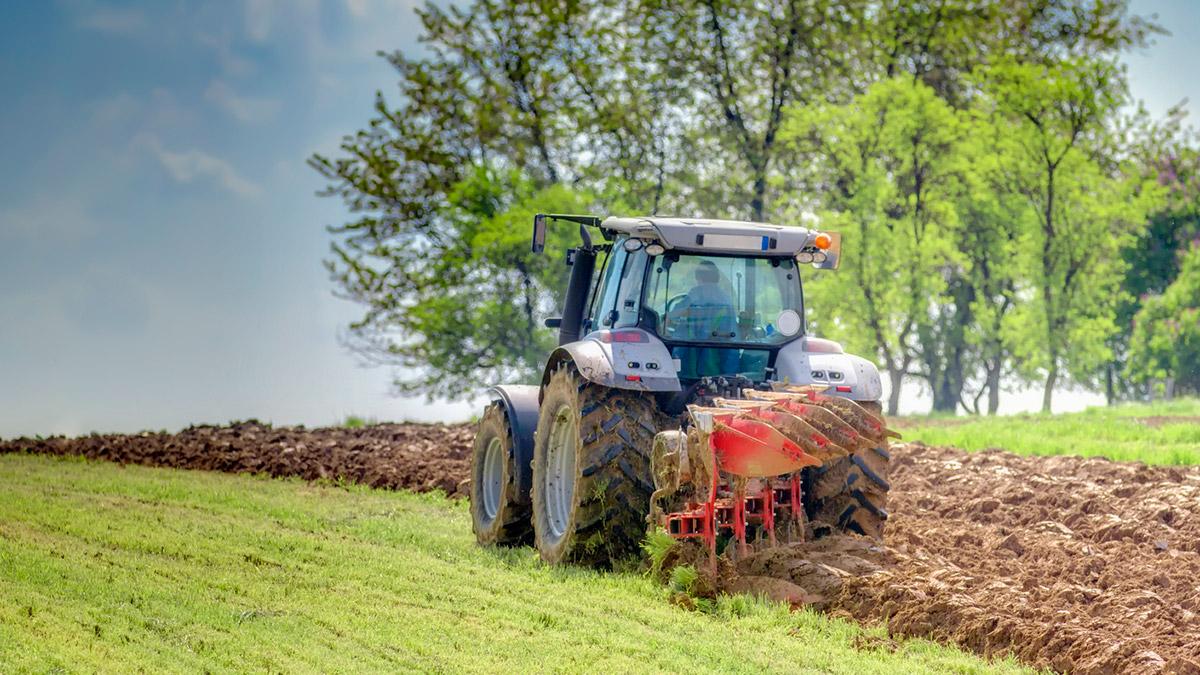Farming activity and pipelines
Farming is the lifeblood of our communities. When working with landowners, we don’t want to impede your operations; we just want to keep families and communities safe, and that safety is a shared responsibility.
Most normal agricultural activities are permitted on the pipeline right-of-way, but some activities still require written consent to ensure the safety of everyone involved, either due to the depth of the activity, or the weight of the equipment involved.
Examples of permitted activities
- Plowing
- Fertilizing
- Disking
- Harrowing
- Cultivating
- Seeding
- Planting
- Spraying
- Tilling
- Baling
- Rolling
- Harvesting
Examples of activities that require written consent
- Brush clearing
- Ditching
- Trenching
- Earth moving
- Drainage ditch cleanout
- Drain tile installation
- Fencing/Landscaping
- Augering
- Using explosives
- Any excavation or ground disturbance that removes or adds soil cover to the pipeline (including the right-of-way)

Did you know?
Standard farming activities no deeper than 45 cm can be completed without written consent from TC Energy.
Farm vehicles and equipment can cross the pipeline right-of-way without written consent from TC Energy if they are being used to perform an agricultural activity like growing crops or raising livestock and their loaded axle weight and tire pressure are within the manufacturer’s approved limits and operating guidelines.
Planning work that might require written consent?
Check out our Agricultural Activities fact sheet or our page on Crossings for more information and a helpful checklist to assist in your planning.
Stay safe, why take the risk?
Life-saving information
Consequences of unsafe digging
Did you know that in most provinces and states, it is a legal requirement to contact your local One-Call service before digging or excavation? These cosequences may include:
Fines and repair costs to fix the underground utility
• Provincial, state or federal regulators can levy hefty fines to both the person excavating and the company responsible, depending on the local regulations
• Repairs to utilities often cost more than the value of your original project, not including reclamation and clean-up costs
Interrupted services such as electricity, gas and water
• Underground utilities carry essential and critical services for the community. Interruptions to these are more than just minor inconveniences; they can put people, businesses and livelihoods at risk
• Some utilities are buried as little as 12 inches below the surface, so even a simple shovel can cause serious damage
Risk of serious injuries and death
• Since 2008, the Pipeline and Hazardous Materials Safety Administration (PHMSA) has reported 715 injured workers and 79 fatalities due to damages done to underground infrastructures during excavation work*.
Frequently Asked Questions
I know where the pipeline is, do I still need to make a One-Call?
You can never be sure where underground utilities are unless they have been marked by a professional. Utilities can shift from erosion or natural forces or new ones may have been installed without your knowledge. Using the free One-Call service allows you to conduct your work safely.
How do I contact my local One-Call service?
Luckily there are resources to help you reach your local service easily. In Canada, you can visit www.ClickBeforeYouDig.com to find your local One-Call service, as well as other useful safe-digging rules and regulations in your province. In the U.S. you can dial 811 or visit www.call811.com to get in touch with your state’s provider.
When do I need to make a One-Call?
You need to make a locate request anytime you are disturbing the ground. This includes digging, piling material, paving or even driving equipment over a right-of-way. Any action that could impact something below the surface counts as ground disturbance.
What is a crossing agreement?
A crossing agreement is an agreement between you and the pipeline operator that allows you to conduct your work safely with the permission and understanding of the pipeline operator. Any changes to your work need to also be approved to ensure your safety.
How do I know if I need a crossing agreement?
If you plan to do any work on a right-of-way or access the right-of-way while conducting your work, there’s a good chance you need a crossing agreement. To find out for sure, you can either make a One-Call and wait for the pipeline operator to contact you, or you can contact the pipeline operator directly through their crossings team. Contact information can be found on this page.
What is the “prescribed area”?
The prescribed area is the area that extends 30 metres on either side of the pipeline centerline. Ground disturbance within this area requires written consent.
Signs of a potential pipeline leak

What you may smell
Natural gas
- Transmission lines that transport natural gas across Canada are rarely odourized, but may have a slight hydrocarbon smell. Distribution lines that transport natural gas to homes and businesses are odourized and could smell skunk-like or similar to rotten eggs.

What you may see
Natural gas
- Dead or dying vegetation on or near a pipeline in a normally green area
- Water bubbling or blowing into the air at a pond, creek or river
- Dirt being blown or appearing to be thrown into the air
- An accumulation of ice or frost over the pipeline (in the summer)

What you may hear
Natural gas
- A hissing, roaring or bubbling sound
Emergency contacts
Canada
In case of emergency, call:
1-888-982-7222
Contact our crossings team:
Apply for crossing online
1-877-872-5177
crossings@lsxythnjy.com
quebec_crossings@lsxythnjy.com
Landowner inquiries:
1-866-372-1601
cdn_landowner_help@lsxythnjy.com
General inquiries:
1-855-458-6715
Public_awareness@lsxythnjy.com
